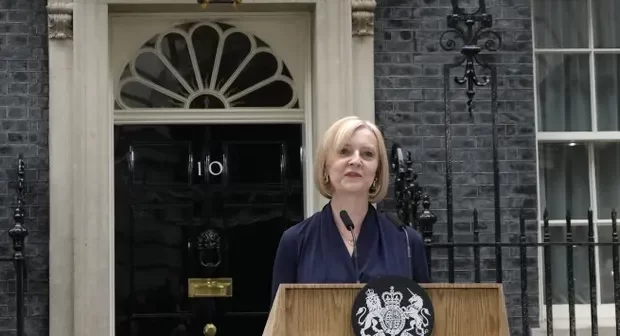Liz Truss has dismissed the argument that she crashed the UK’s economy while she was prime minister, and while conceding she made mistakes in No 10, sought to primarily blame “groupthink” from the Bank of England, the media and civil service.
In a speech and Q&A shortly before the anniversary of her government’s so-called mini-budget, which spooked markets with its push for seemingly unfunded £45bn in tax cuts, Truss twice dodged the question when asked if she wanted to apologise to households facing higher mortgage rates.
Instead, she argued, the primary issues were with economic institutions, such as the Bank of England, which had allowed artificially low interest rates to go on too long, and a wider “sense of groupthink and consensus”.
Speaking after her heavily trailed speech, Truss made it plain she hoped to resurrect her economic arguments within the Conservative party, confirming she would attend the Tory conference next month, where she would be “saying more”.
Her apparent comeback prompted criticism from some Tory MPs, with Conor Burns saying Truss’s best contribution to the party would be “sustained silence”, while Damian Green said he was “glad she’s not responsible” for this year’s budget.
Asked if the economic record of her 49 days in office had damaged the Conservative brand, Truss pushed back, and accused the questioner of echoing opposition ideas.
“I really want to challenge this phrase, ‘crashed the economy’,” she told the Institute for Government event. “The fact is that since I left office, both mortgage rates and gilt rates have gone higher than they were at the time of the mini-budget. So I just think you are repeating a line to take from Labour.”
The Bank of England had been “pumping the system full of money”, keeping interest rates low, and allowing “excessive government spending”, Truss argued.
“Interest rates were going to go up anyway. I think the real failure was not to tell people, years and years ago, that interest rates were artificially low. That was the problem,” she said.

